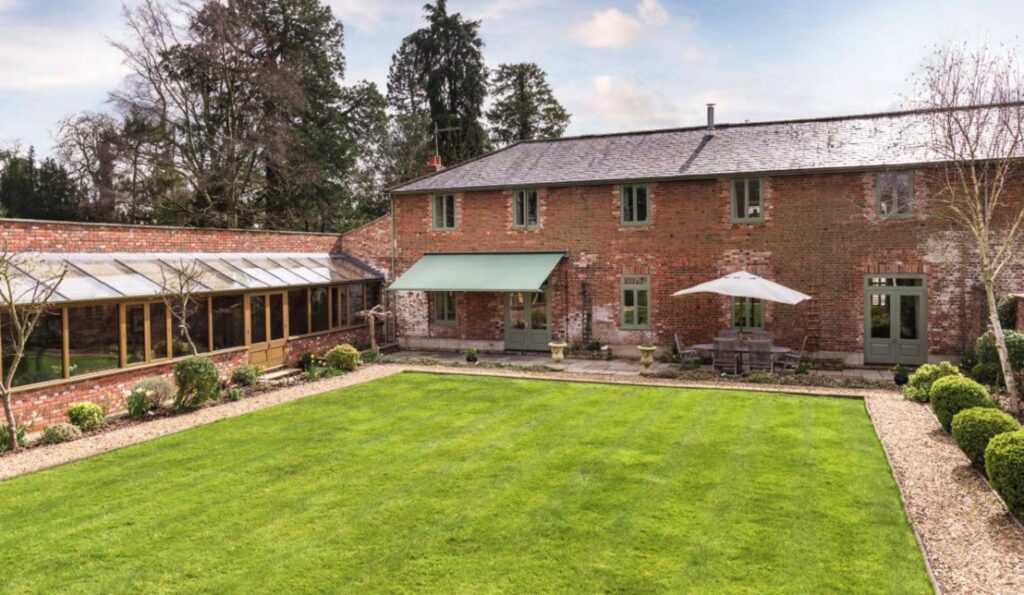The fields to the north of Rode Mill, as you head from Rode towards the A36, were once part of Northfield, one of three large open communal fields of medieval Rode. In 1737 Mr Andrews, a Bristol merchant, acquired the manor of Rode and built a large house at the top of the hill, which he called Northfield House.
By the early 1800s the house and land had been bought by brothers Henry Batten and Thomas Pooll. Their great nephew, Robert Pooll Langford, inherited it in 1861 as a minor, on condition he adopted his benefactor’s name. He greatly enlarged the house, to what is shown in the images below, and renamed it Rode Manor.
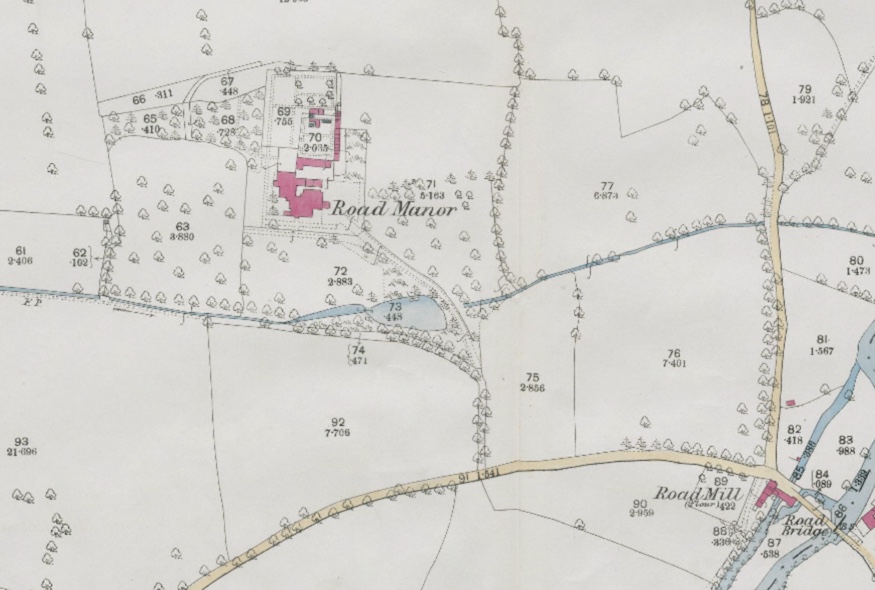
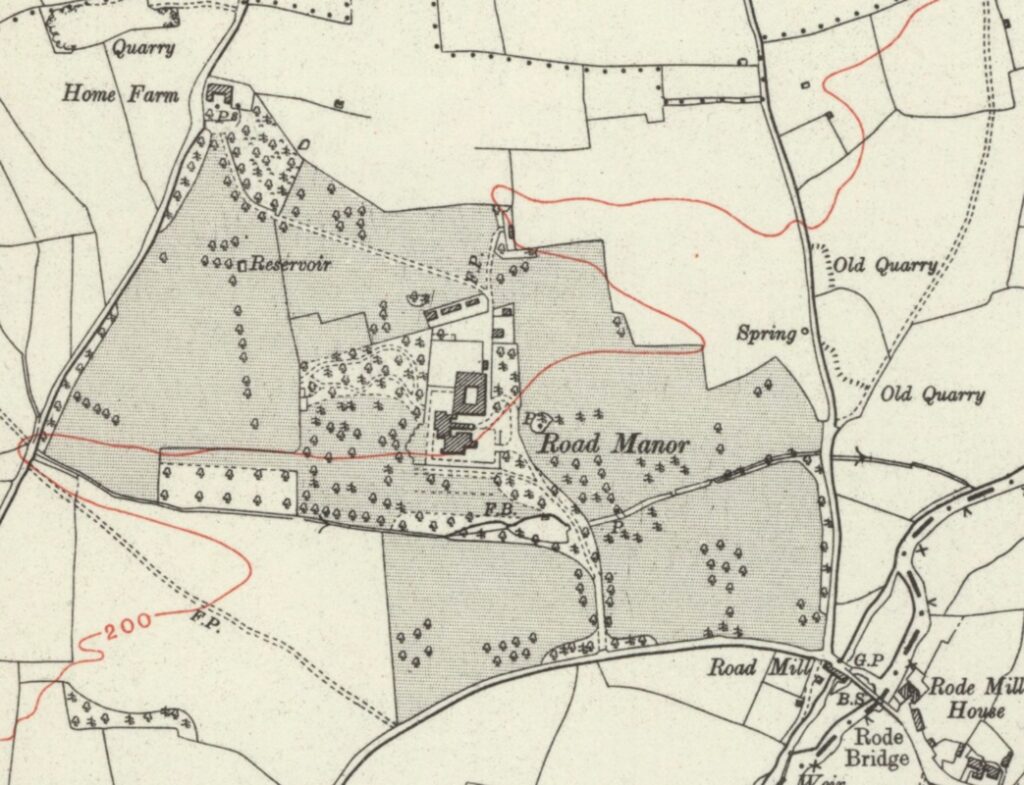
The Batten Poolls were keen gardeners and developed beautiful gardens, water features and wooded areas around the house.
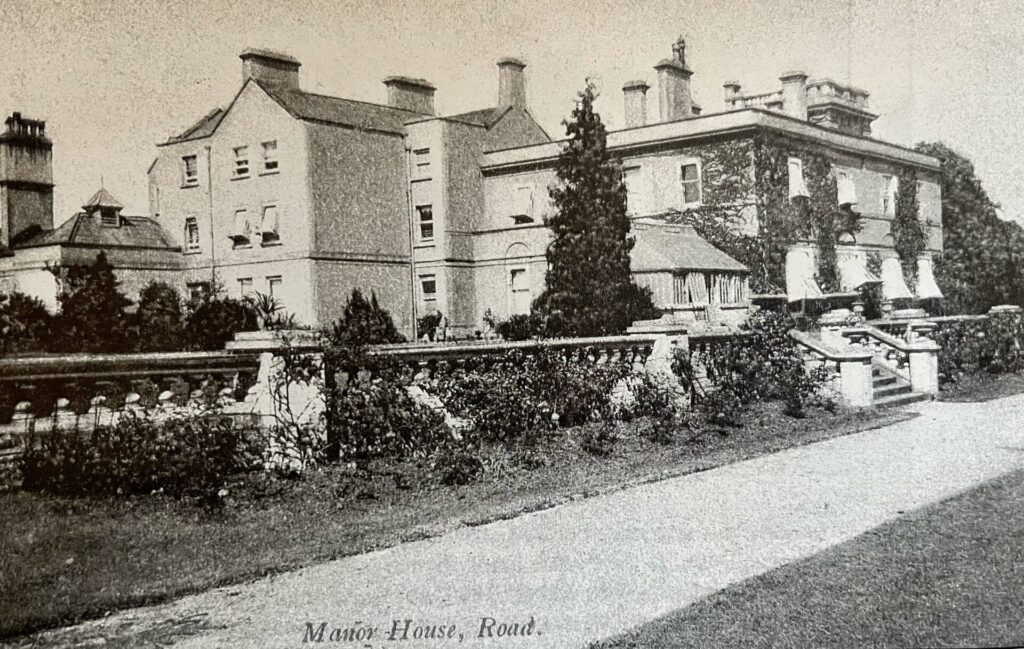
Robert Pooll Henry Batten Pooll died in 1930 and his son Captain Walter Batten Pooll inherited the property. After his death in 1955, the contents of the house were sold off, fittings were stripped out, and the house demolished (see below).
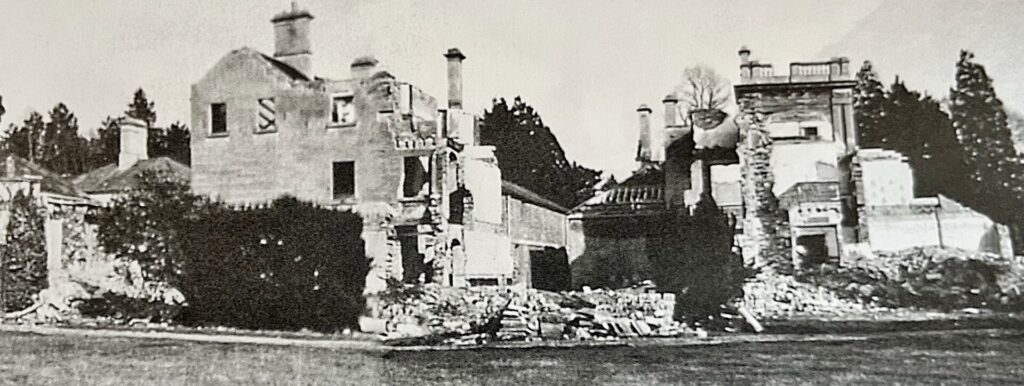
Donald and Betty Risdon boight the grounds in 1961 to develop into a tropoical bird garden. The garden opened in 1962 and became a great attraction as the varieties of birds and other entertainments increased. When Donald Risdon died a new owner could not be found, and the Bird Gardens closed in 2000. The site has now been developed into a small group of private houses. A few of the Manor House buildings remained, and were incorporated into one of the residential properties (The Rydings, see image further down).
Adela Pankhurst, Head gardener, Rode Manor, 1913
Adela (1885-1961) was the youngest daughter of WSPU (Women’s Social & Political Union) founder Emmeline Pankhurst and her husband Richard. Hence, Adela was embroiled in WSPU life from the society’s earliest days. In 1906 (whilst working as an elementary school teacher) Adela was arrested along with Hannah Mitchell in Manchester for taking part in a WSPU demonstration and imprisoned for one week. Afterwards, she became WSPU organiser for Yorkshire, but also carried out work in Aberdeen, Cardiff and Bristol, where she was described by Emily Blathwayt as ‘a dear little thing’ who ‘except when she speaks looks like a timid child’.
Whilst campaigning in Dundee in 1909, Adela was arrested and imprisoned with Helen Archdale – with whom she later lived – among others for breach of the peace. Adela went on hunger strike and was described by the Scottish prison authorities as of ‘the degenerate type’ thus unsuitable for forcible feeding – a brutal practice sanctioned by the government and carried out on hunger striking suffragettes by prison authorities. Adela was released after just a few days.
In 1911, Adela was organising in Sheffield and living at Helen Archdale’s family home. There the two women took part in the suffrage boycott of the 1911 government census on the evening of the 2nd April. Adela and Helen ‘resisted’ the census, but also hosted a mass evasion. That night almost 60 people slept over, strewn across various rooms in Helen’s home – though press reports indicate there was much more partying that night than sleeping! (see Helen Archdale).
By 1912, ill health and perhaps a dislike of the way the WSPU’s militant and political tactics were going (Adela disagreed her mother and sister Christabel’s loosening of ties with the Labour Party) meant that Adela gave up work for the WSPU. In summer that year, she attended Studley Agricultural College in Worcestershire, gained a Diploma, and afterwards worked as head gardener for Mrs Batten Pooll at Road Manor near Bath.
However, Adela struggled to find work and so in 1914, she emigrated to Australia to take a post as organiser for the Women’s Political Association in Melbourne. During the War years, it became the Women’s Peace Army. Adela was a committed pacifist and socialist and in 1917 married fellow socialist Tom Walsh, a widower with three children. The couple went on to have four surviving children of their own. Shortly after marrying Tom, Adela spent nine months in prison for leading processions for the Women’s Socialist League.
She went on to perform key roles in the Australian Communist Party and later, in the antithetical Australian Women’s Guild of Empire. She was interred in 1942, for supporting Japan’s position during WWII. Afterwards, she worked as a nurse for children with learning difficulties.
General sources: Elizabeth Crawford, The Women’s Suffrage Movement: A Reference Guide, 1866-1928 (London: 2001); Jill Liddington, Vanishing for the Vote: Suffrage, Citizenship and the Battle for the Census (Manchester: 2014).
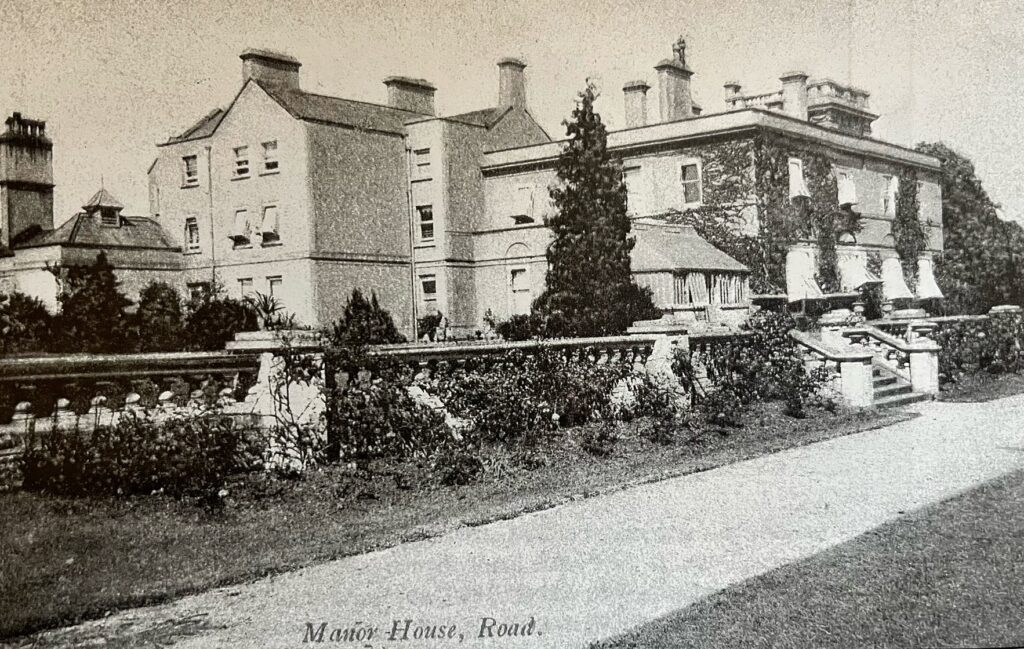
The modern Rode Manor
The modern “Rode Manor” was completed in 2006 and it forms part of The Rode Manor estate, a development of six properties created on the site of the former manor house by Mackintosh Homes.
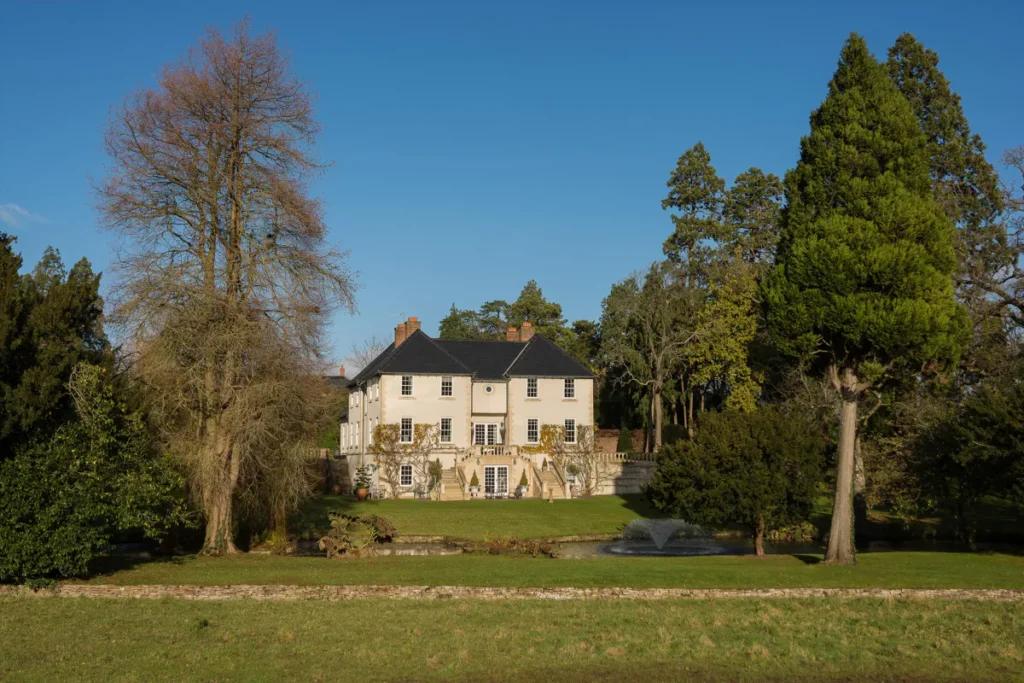
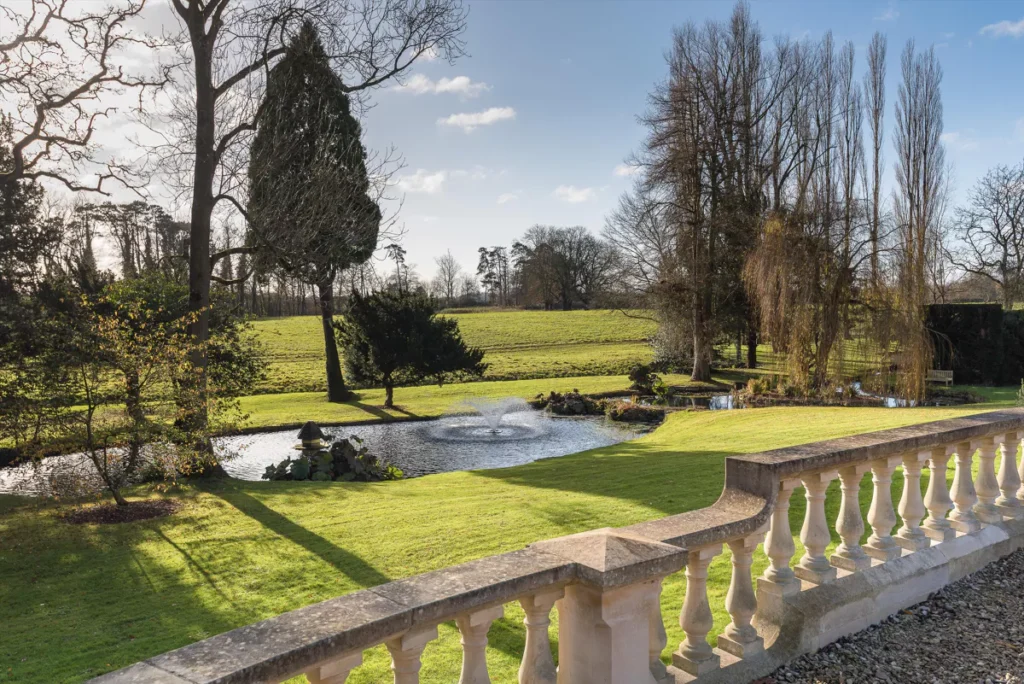
One of the properties (“The Rydings”) incorporates some of the original outbuildings and coach house. The two images below show (top) the Bird Gardens c1965, and (below) “The Rydings” private dwelling.

